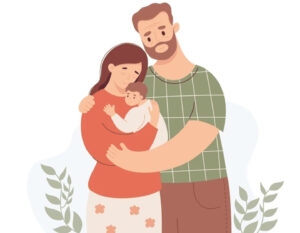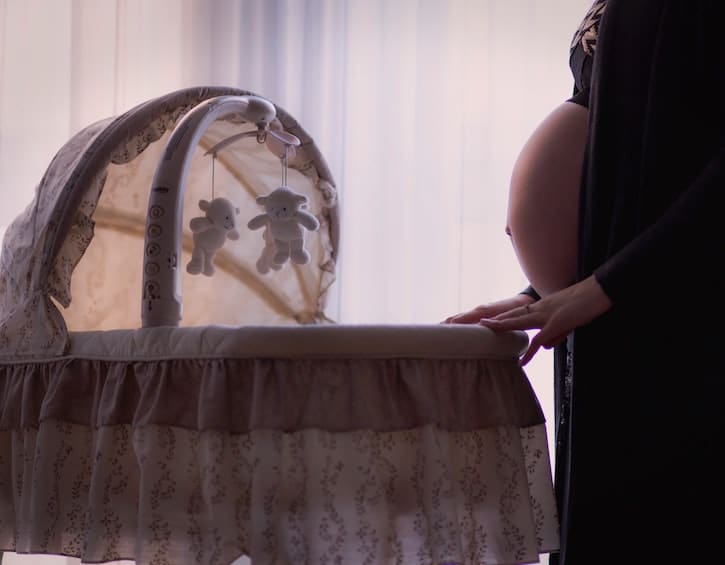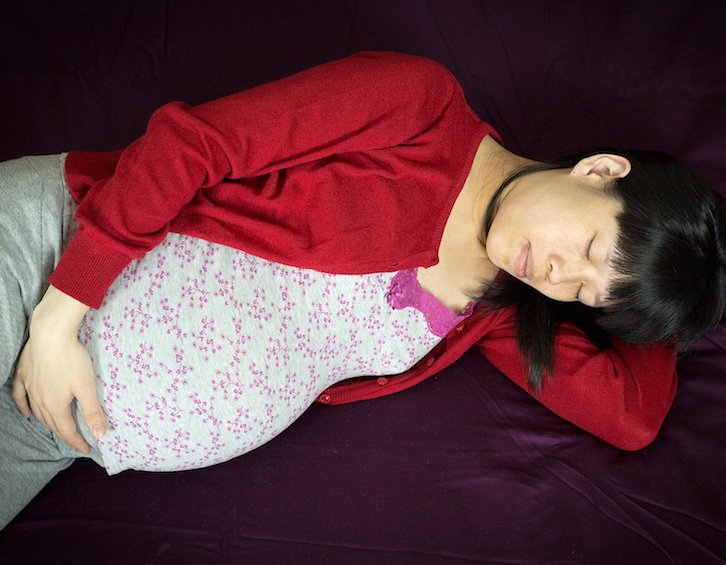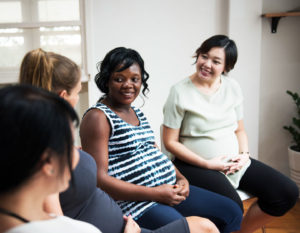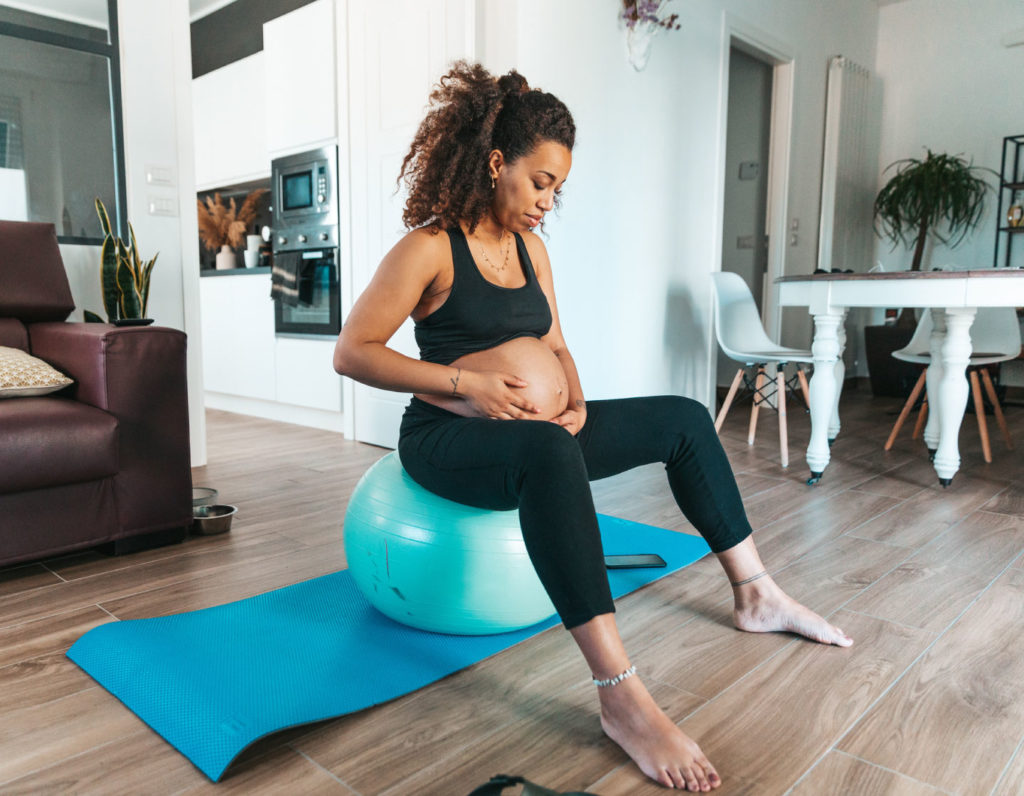
 Post Category - ExpertsExperts - Post Category - PregnancyPregnancy
Post Category - ExpertsExperts - Post Category - PregnancyPregnancy Post Category - PregnancyPregnancy
Post Category - PregnancyPregnancyPregnancy is full of surprises — some strange, some beautiful, and all part of the incredible journey your body is undergoing.
You probably thought you were ready for this. You read the books, deep-dived into the internet, quizzed your doctor and took notes from every pregnant friend or new mum you know. But no matter how much you prepare, there’s always something unexpected — a symptom or change that catches you off guard. So, what’s really happening? We’re here to break down the weird and wonderful ways your body transforms during pregnancy to help it all make sense!
Read more: Natural Remedies To Heal Your Body During Pregnancy
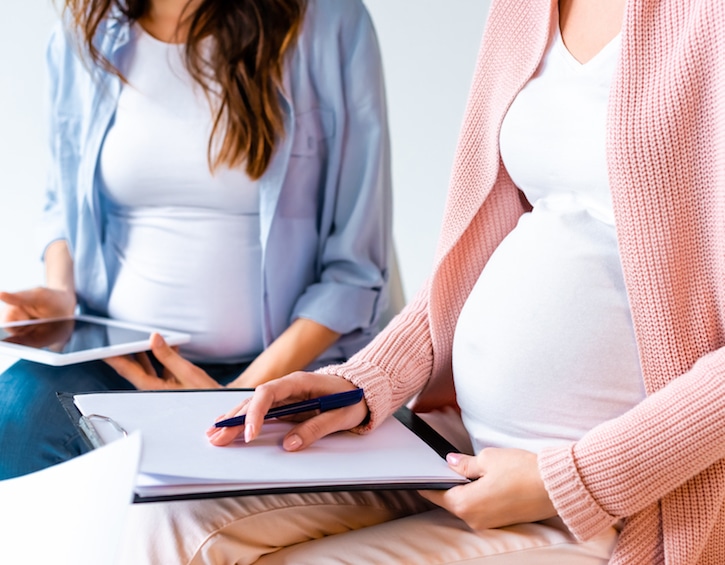
1. Baby Brain
A study released in 2024 confirms what so many of us already know: that baby brain is, in fact, a very real phenomenon. The detailed maps of a 38-year-old pregnant woman’s brain revealed that her brain’s “grey matter” — which controls movement, emotions and memory, shrunk roughly 4% throughout her pregnancy, and did not immediately rebound post-birth. The effects of this typically manifest as increased forgetfulness, impaired decision-making and lack of concentration — so don’t feel too silly if you’ve found your keys/phone/wallet in the fridge somehow! On the flip side, during the first two trimesters, connections between your brain regions (or “white matter”) may strengthen!
Read more: Where To Buy Supplements In Hong Kong For The Whole Family
2. Frequent Toilet Trips
It almost goes without saying that you will be spending a lot of time to-ing and fro-ing from the bathroom while pregnant. During these nine months, the hormones associated with pregnancy, along with the physical changes of carrying a growing baby, will have a notable impact on your urinary system. Hormones will stimulate your kidneys to expand and expel waste more efficiently. Add to that your little one applying more and more pressure on your bladder as the weeks go by, and it makes for an interesting combination as far as your toilet habits are concerned! Think of those late-night dashes as your body’s way of helping to prepare you for those wake-up calls with a newborn.
Read more: The Best Baby Sleep Coaches & Night Nurses In Hong Kong
3. Food Cravings
We’ve all heard about the many weird and wonderful food combinations women crave during pregnancy. Whether you have the urge to dip bananas in ketchup (a la Beyoncé) or are suddenly craving foods you previously didn’t like, it’s no secret that it’s difficult to stay healthy during pregnancy. We don’t know exactly what causes these changes, but it’s most likely due to hormone fluctuations, especially concerning dopamine levels, which drop during pregnancy. Let’s just say it’s likely women crave the feel-good factor of comfort foods rather than salads or veggies!
Read more: How To Introduce New Flavours & Textures To Toddlers
4. Nesting
Nesting can be most accurately described as a mother’s overwhelming urge to prepare her environment for the impending new arrival, with this instinct being at its strongest in the latter weeks of pregnancy. Not all women experience nesting — and those who do can experience it in very different ways, from organising their baby clothes neatly into drawers, to deep cleaning the entire apartment! Nesting most commonly occurs around week 38 and 39, so be careful to only do what you feel is safe (AKA, delegate any heavy lifting to others!).
Read more: 5 Ways To Kit Out A Nursery Without Breaking The Bank
5. Temperature Regulation (or lack of!)
An increase in your basal body temperature can often be one of the first signs of pregnancy, and a slightly higher core temperature will be maintained throughout the following nine months. With that said, it’s not surprising that a lot of pregnant women run hot! Wearing loose-fitting clothing and drinking plenty of fluids will certainly help, and a hand-held fan will quickly become a handbag staple.
Read more: How To Survive Summer When You’re Pregnant — Tips For Staying Cool
6. Morning Sickness At All Times
Although commonly referred to as morning sickness, nausea and vomiting associated with early pregnancy can strike at any time of day. This, again, is down to hormones along with a heightened sense of smell during pregnancy. The majority of women experience a low level of nausea on and off throughout the day, which can be exacerbated by an empty stomach. Although you may very well not feel like eating, doing so can help relieve the nausea symptoms. Eating little and often, as well as carrying some light snacks in your handbag for those emergency hunger pangs, can contribute to keeping nausea in check. Some women also find that wearing motion sickness bands and drinking ginger tea can make all the difference. The good news is that (for most!) morning sickness tends to resolve itself after the first 12 weeks of pregnancy.
Read more: Practical Pregnancy Advice — How To Survive Morning Sickness
7. Tiredness
Pregnancy is tiring work for a whole host of reasons, so naps will quickly become your best friend during these nine months. By the end of the first trimester, your body will have completed the mammoth task of building the placenta, and many women report noticeably decreased energy levels during this time. It’s perfectly normal for your usual exercise routine and social life to take a bit of a back seat in early pregnancy, and first-trimester fatigue typically improves between weeks 16 to 20. However, persistent and excessive tiredness can be a sign of low iron in your blood, which can often be associated with light-headedness and heart palpitations. Be sure to have your doctor or midwife check your iron levels if you have any of these symptoms and add plenty of green, leafy vegetables and red meat to the menu!
Read more: Practical Pregnancy Advice — How To Survive Morning Sickness
8. Bleeding Gums
Another unexpected pregnancy symptom can be sensitive, bleeding gums when brushing your teeth, most likely due to hormonal and dietary changes. With this in mind, try to visit your dentist at least once during the antenatal period for a check-up and clean and be sure to inform them of your pregnancy prior to the appointment. Adding plenty of vitamin C to your diet will help to promote healthy gums, while that extra glass of milk to up your calcium intake will work wonders for your teeth (and bones!).
Read more: Trusted Dentists & Dental Clinics In Hong Kong
9. Flatulence
Another common (and potentially blush-inducing!) symptom of pregnancy is excessive wind, gassiness and feelings of bloating. This time, increased levels of progesterone are to blame, as this causes your muscles to relax, which in turn results in a build-up of gas in the body. Though not entirely comfortable, this is a completely normal experience, and there are a few things that can be done to ease your symptoms. Trying to avoid constipation is important so think plenty of fluids and high-fibre foods such as prunes, figs, bananas and whole-grains. Physical activity can also help speed up digestion so adding some exercise, however light, into your daily routine can help work to banish the bloat!
Read more: Five Whole Foods To Help Reduce Pregnancy Swelling
10. Thicker Hair And Nails
By week 20 of pregnancy, some women may notice that their hair and nails are growing much more rapidly than they were before. Again, hormones are the main culprits as rising estrogen levels, along with increased blood circulation, result in extra nutrients being provided to your hair and nails. This means that you will shed less hair than usual, and you may also notice that your hair is shinier during pregnancy. Not that we’re complaining!
Read more: Couples Spas & Massages In Hong Kong
 View All
View All


 View All
View All


 View All
View All
 View All
View All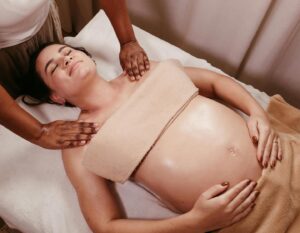

 View All
View All